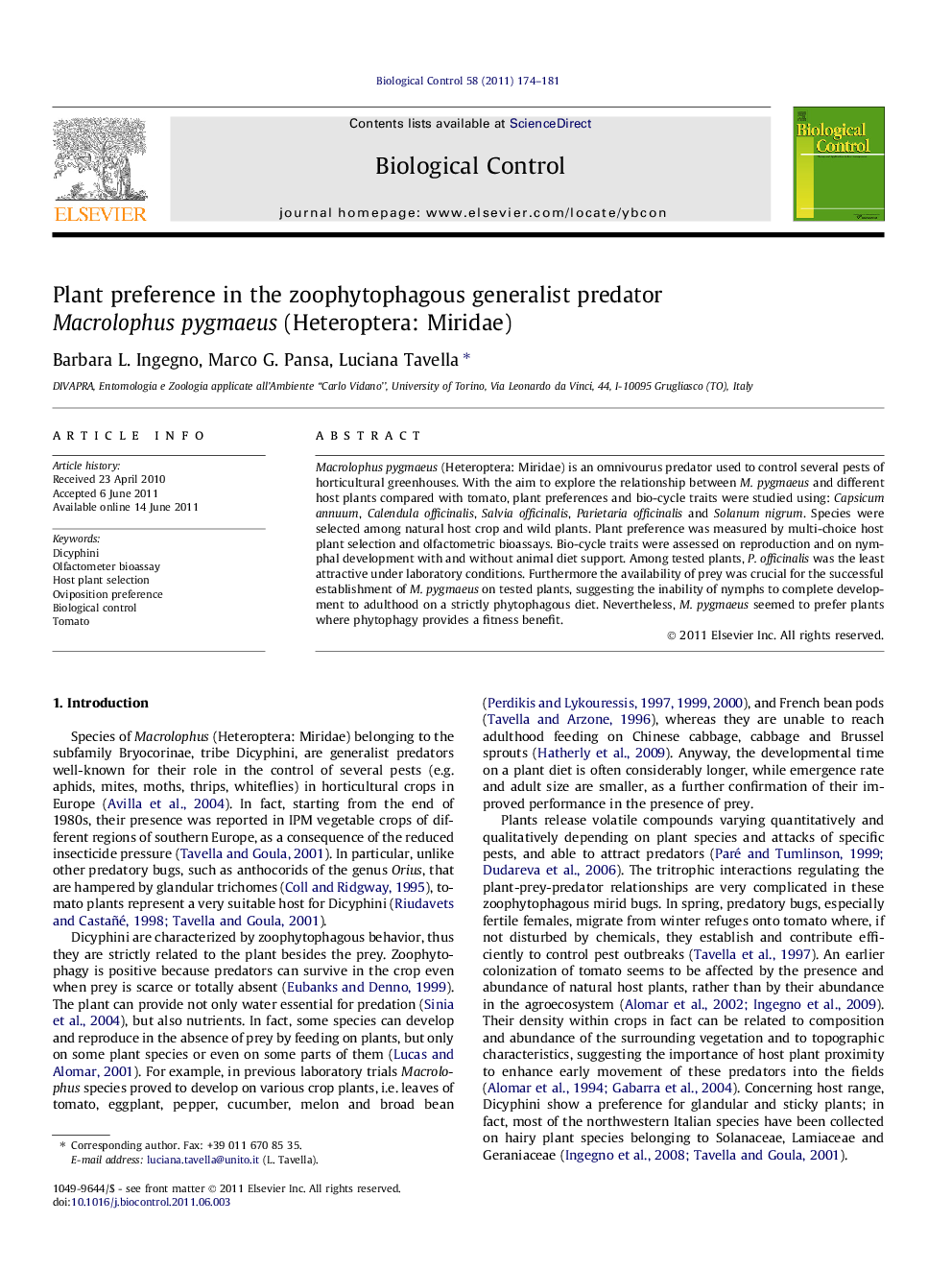| Article ID | Journal | Published Year | Pages | File Type |
|---|---|---|---|---|
| 4504247 | Biological Control | 2011 | 8 Pages |
Macrolophus pygmaeus (Heteroptera: Miridae) is an omnivourus predator used to control several pests of horticultural greenhouses. With the aim to explore the relationship between M. pygmaeus and different host plants compared with tomato, plant preferences and bio-cycle traits were studied using: Capsicum annuum, Calendula officinalis, Salvia officinalis, Parietaria officinalis and Solanum nigrum. Species were selected among natural host crop and wild plants. Plant preference was measured by multi-choice host plant selection and olfactometric bioassays. Bio-cycle traits were assessed on reproduction and on nymphal development with and without animal diet support. Among tested plants, P. officinalis was the least attractive under laboratory conditions. Furthermore the availability of prey was crucial for the successful establishment of M. pygmaeus on tested plants, suggesting the inability of nymphs to complete development to adulthood on a strictly phytophagous diet. Nevertheless, M. pygmaeus seemed to prefer plants where phytophagy provides a fitness benefit.
Graphical abstractFigure optionsDownload full-size imageDownload as PowerPoint slideHighlights► Biological and behavioral responses of Macrolophus pygmaeus on six plants. ► Availability of prey is crucial for the successful establishment of the predator. ► M. pygmaeus prefers plants where phytophagy provides a fitness benefit.
